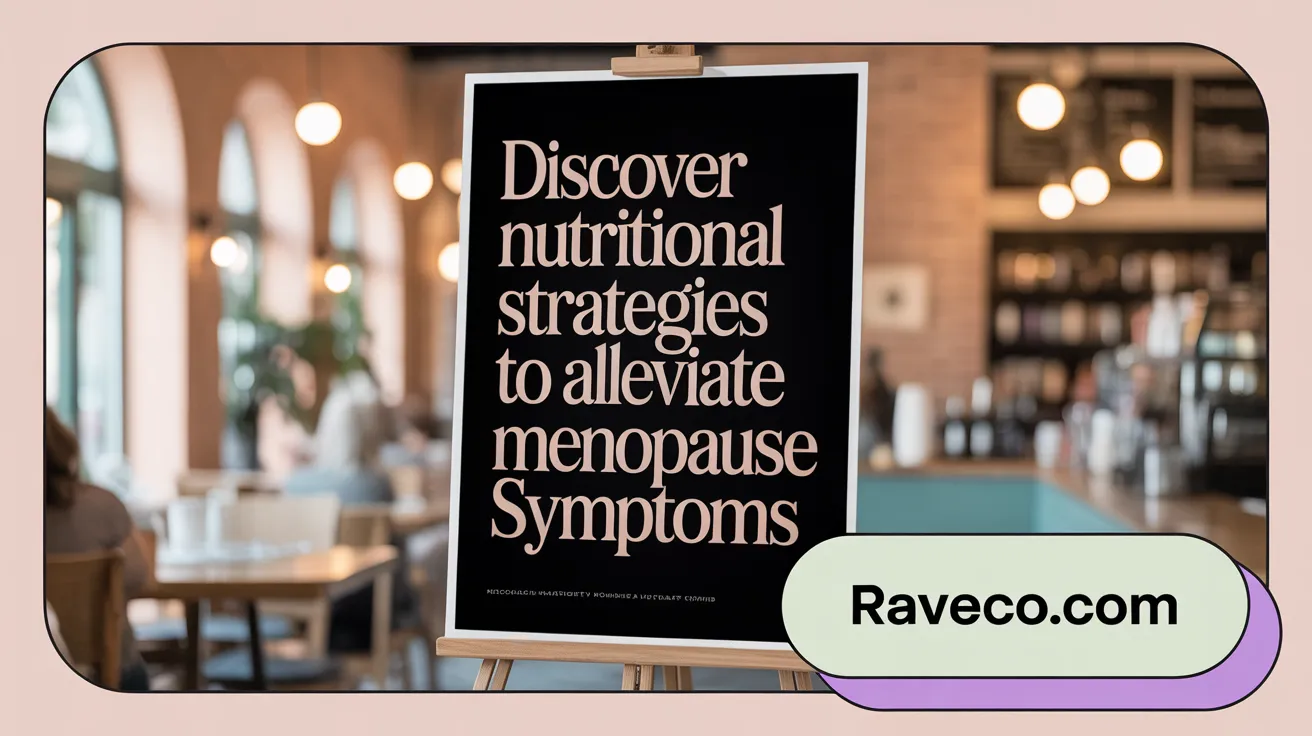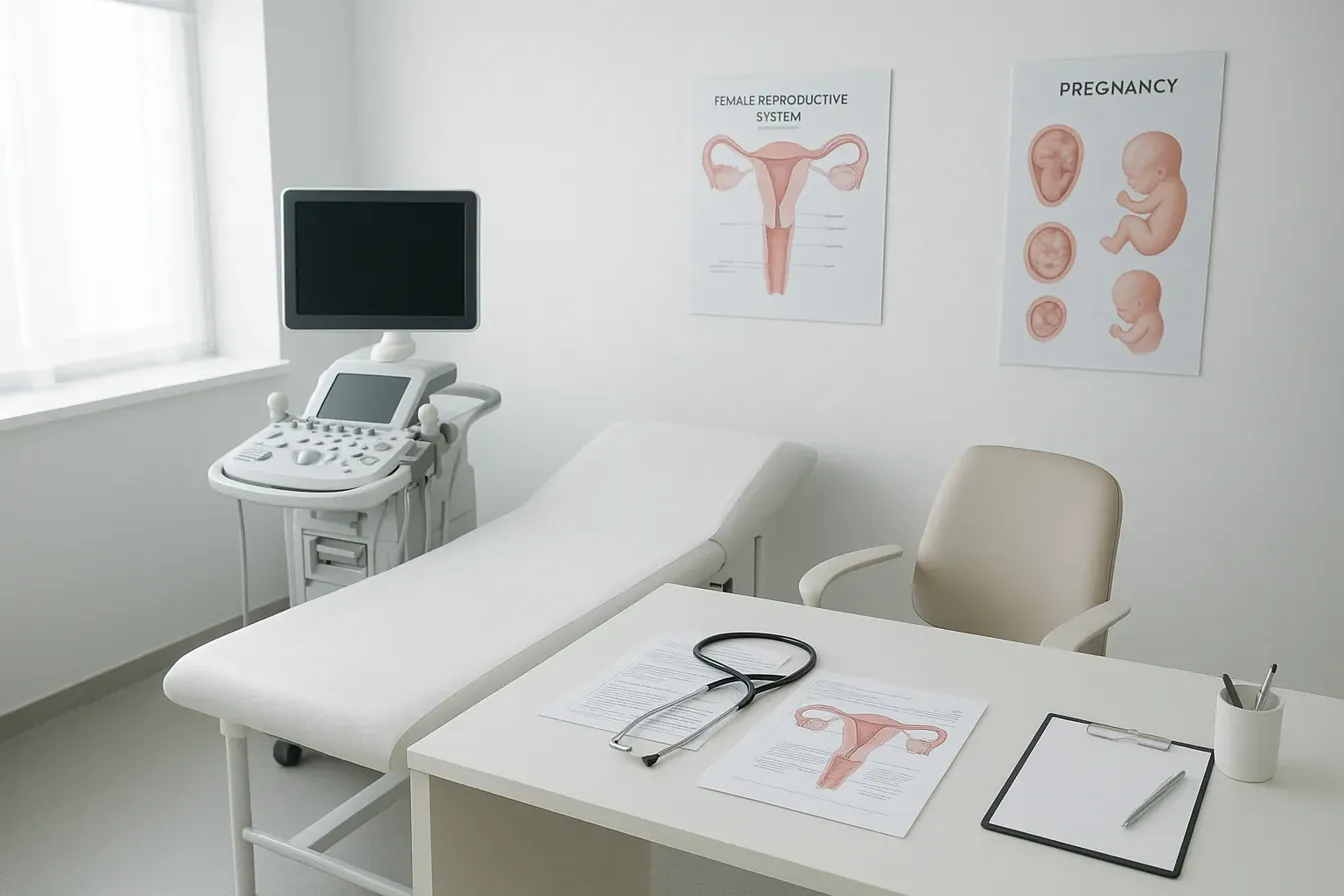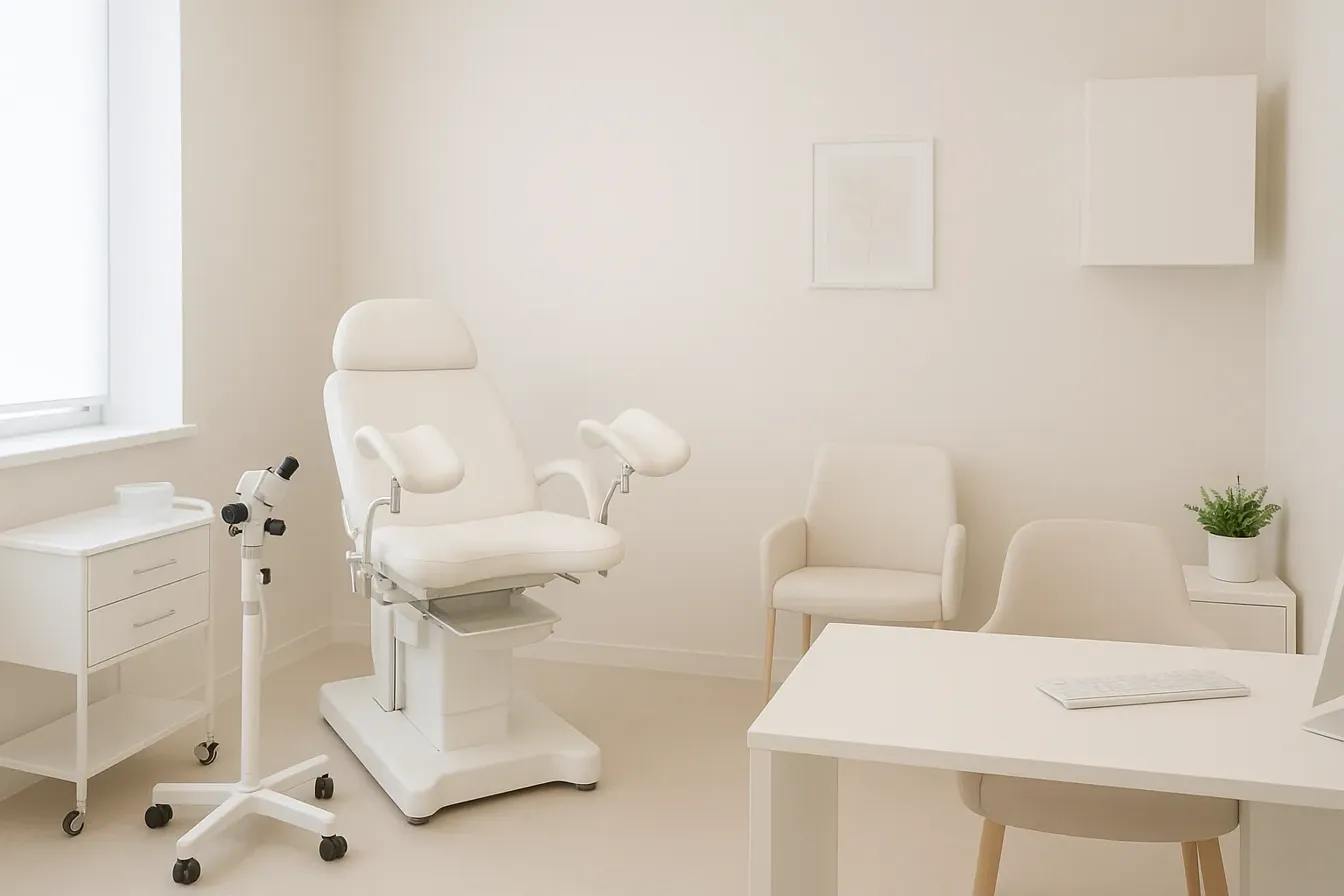Navigating Your Birth Control Choices: Tailoring Options to Fit Your Unique Lifestyle

Understanding Menopause: More Than Hormones
Menopause, a natural life stage typically occurring around age 52, signals the end of menstrual cycles due to hormonal changes, primarily decreased estrogen and progesterone production. This transition encompasses distinct phases — perimenopause, menopause, and postmenopause — each with unique symptoms such as hot flashes, night sweats, mood swings, sleep disturbances, and vaginal dryness. Diagnosis primarily relies on clinical symptoms and menstrual history, sometimes supported by hormone level testing. While hormone replacement therapy remains a mainstay for symptom relief, increasing numbers of women seek holistic, natural, and lifestyle-based strategies. These approaches focus on nurturing the physical, emotional, and social dimensions of health, providing integrative options beyond conventional hormones to improve quality of life and manage menopausal symptoms effectively.
Holistic and Lifestyle Strategies for Menopause Support

Supporting women through menopause requires a multifaceted, personalized approach that considers physical, emotional, and social wellbeing. Central to this strategy is the promotion of balanced nutrition. A diet rich in calcium—found in dairy, leafy greens, and fortified foods—paired with vitamin D from sunlight and diet can help prevent osteoporosis. Incorporating omega-3 fatty acids from fatty fish, flaxseed, and walnuts supports heart health and may reduce menopausal symptoms. Phytoestrogens present in soy, flaxseed, and legumes can offer mild hormonal balance, alleviating hot flashes and mood swings.
Regular physical activity is vital for maintaining bone density, cardiovascular health, and mental wellbeing. Resistance training, weight-bearing exercises, and aerobic activities like walking or swimming strengthen muscles and bones, while also improving sleep and mood. Stress management techniques such as yoga, meditation, and cognitive-behavioral therapy help mitigate psychological symptoms and reduce cortisol levels.
Mind-body practices, including mindfulness meditation, breathing exercises, and acupuncture, can complement lifestyle modifications by reducing stress and enhancing overall resilience. Empowering women through education about their health, fostering active participation, and tailored care plans crafted by a multidisciplinary team—including gynecologists, nutritionists, exercise specialists, and mental health professionals—ensure interventions meet individual needs.
Creating a supportive environment involves social engagement, community support groups, and addressing psychosocial factors. Environmental and financial considerations, like ensuring access to safe outdoor spaces and affordable healthcare, also play a crucial role in long-term health outcomes. Ultimately, adopting an integrative approach that combines holistic therapies, lifestyle modifications, and patient-centered care empowers women to navigate menopause with vitality, resilience, and happiness.
Nutrition and Dietary Approaches to Managing Menopause

How can diet and nutrition help manage menopausal symptoms?
Diet and nutrition are vital tools in managing menopause symptoms because they provide key nutrients that support overall health, especially bones, heart, and hormonal balance. A balanced intake of whole grains, fruits, vegetables, lean proteins, and healthy fats can alleviate hot flashes, improve sleep quality, and assist in weight management. For detailed guidance on nutrition and menopause, see Nutrition and Menopause.
Foods rich in calcium and vitamin D are crucial in preventing osteoporosis, a common concern during menopause. Incorporating dairy products, leafy greens, and fortified foods ensures adequate calcium intake, while sunlight exposure and supplements help maintain vitamin D levels. More on Calcium and Vitamin D Sources and Calcium and Vitamin D Intake.
Phytoestrogens, naturally occurring plant compounds found in soy, flaxseed, and whole grains, may help reduce hot flashes by mimicking estrogen activity. Regular consumption of soy-based foods such as tofu and soy milk has been linked to fewer menopausal symptoms in some populations. Learn more about Phytoestrogens and Hormone Balance and benefits of Soy Isoflavones.
Limiting processed foods, sugars, caffeine, and alcohol is recommended, as these can trigger hot flashes and disrupt sleep. Emphasizing nutrient-dense foods not only eases symptoms but also lowers the risk of cardiovascular disease—a significant concern post-menopause. See Lifestyle Changes to Reduce Menopause Symptoms and Healthy Diet for Menopause.
Additionally, maintaining hydration by drinking adequate water supports tissue health and can lessen dryness and bloating. Dietary patterns like the Mediterranean diet, rich in healthy fats, fish, fruits, and vegetables, have shown benefits in supporting heart and bone health. Explore Mediterranean Diet Benefits for Menopause and Healthy Diet for Menopause.
Overall, an individualized approach, focusing on nutrient-rich foods and lifestyle modifications, can effectively reduce menopausal symptoms and promote long-term well-being. For comprehensive menopause nutrition and lifestyle tips, see Holistic Menopause Relief and Diet and Menopause Symptoms.
Supplements and Herbal Remedies: Benefits and Precautions

Supplements and herbal remedies can play a supportive role in managing menopause symptoms, with many containing plant compounds or nutrients that may alleviate hot flashes, night sweats, sleep disturbances, and mood swings. For example, herbs like black cohosh for menopause, red clover, and evening primrose oil have been traditionally used to reduce vasomotor symptoms, although scientific evidence varies and some studies show mixed results. Other supplements such as soy, flaxseed, and ginseng contain phytoestrogens or bioactive compounds that can help modulate hormone levels and improve quality of life, but their effectiveness is not uniformly established.
Many herbal remedies are not regulated as strictly as hormone therapy, raising concerns about safety, dosage, and purity. The quality, purity, and ingredient consistency of herbal products are often unverified, which can lead to safety risks such as contamination or incorrect labeling. Some herbs may cause adverse interactions with medications or have contraindications, especially in women taking blood thinners, hormone-sensitive treatments, or with pre-existing health conditions (Herbal remedies for menopause symptoms).
Because of these factors, consulting healthcare professionals before starting any supplement or herbal remedy is crucial. Medical guidance ensures safe and appropriate use, considering individual health status and potential medication interactions. While some women find relief through herbal options, the overall scientific consensus indicates that their efficacy is variable and often lacks robust clinical evidence (Herbal supplements for menopause, Evidence-based menopause treatments).
In summary, supplements and herbal remedies might offer additional support for menopause symptoms, but they should be used cautiously and always under medical supervision. This approach helps prevent possible adverse effects and ensures that management strategies are safe, effective, and tailored to each woman's health needs (Personalized Menopause Care Plans).
Efficacy of Complementary and Alternative Medicine (CAM) for Menopause

Numerous studies suggest that certain Complementary and Alternative Medicine for Menopause therapies can play a supportive role in managing menopausal symptoms, although the strength of evidence varies. Among mind-body practices, hypnosis for hot flashes stands out with consistent, high-quality evidence showing it can dramatically reduce hot flash severity and frequency—by over 69%—making it a promising non-pharmacological option comparable to medication. Techniques such as cognitive behavioral therapy (CBT), relaxation, and mindfulness-based interventions also help improve sleep, reduce stress, and enhance overall well-being, although their direct effects on symptom frequency are less conclusive.
Herbal therapies like black cohosh and phytoestrogen-rich foods such as soy and red clover exhibit mixed outcomes in research. Some studies report benefits in alleviating vasomotor symptoms, but results are inconsistent, and safety concerns—particularly liver toxicity associated with certain herbs—necessitate cautious use under professional guidance.
While many CAM therapies are generally safe when accessed properly, their efficacy is supported mainly by limited or preliminary evidence. It is essential for women to consult healthcare providers before starting these approaches to ensure safety, especially with herbal products. Emerging research continues to explore their potential, aiming for more definitive conclusions.
In summary, CAM offers valuable adjunct practices for symptom relief and improved quality of life during menopause. Nonetheless, ongoing well-designed studies are crucial to better understand their effectiveness and to guide informed, individualized treatment decisions.
Mind-Body Practices and Their Role in Symptom Relief

Which mind-body practices are effective in alleviating menopausal symptoms?
Various mind-body techniques have shown promise in reducing the intensity and bother of menopausal symptoms. The most supported include yoga, tai chi, qigong, mindfulness-based stress reduction (MBSR), cognitive behavioral therapy (CBT), and hypnotherapy.
Studies indicate that these practices are effective at alleviating hot flashes, night sweats, sleep disturbances, and psychological issues such as anxiety and mood swings. They promote relaxation, improve mental clarity, and help manage stress—a significant factor influencing menopausal discomforts.
For example, systematic reviews and meta-analyses reveal that yoga and tai chi not only reduce vasomotor symptoms but also enhance overall wellbeing, mood, and sleep quality. Mindfulness practices, like the body scan meditation and breathing exercises, contribute to lowered stress hormones and a calmer autonomic nervous system response (Mindfulness and menopausal symptoms).
CBT has been demonstrated to reduce interference from hot flashes and improve sleep, while hypnotherapy can significantly decrease hot flash frequency and severity. Acupuncture, although more mixed in results, may support these goals by modulating estrogen levels and easing discomforts.
Benefits of these mind-body techniques extend beyond symptom relief.
Research suggests they can also support bone health, bolster emotional resilience, and improve quality of life with minimal costs or risks. These practices are generally accessible—often requiring minimal equipment or professional supervision—and suited for many women, regardless of age or fitness level (Holistic Menopause Relief).
Incorporating mind-body therapies into personalized menopause care plans
Given their safety profile and holistic benefits, integrating these practices into a tailored menopause management strategy is recommended. Women can start with beginner-level classes, guided meditations, or self-directed exercises, gradually building routines that fit their preferences and lifestyles.
Healthcare providers can support this approach by recommending evidence-based techniques and adjusting them according to individual needs, symptoms, and health status. Ultimately, combining mind-body practices with other lifestyle modifications offers a comprehensive, non-invasive way to enhance vitality and ease during menopause (Integrative Menopause Treatment).
Recent Developments and Integrative Management Approaches
What are the recent FDA-approved non-hormonal drug options for menopausal symptom management?
Recent advancements in menopause treatment include the FDA approval of fezolinetant, marketed as Veozah. Approved in May 2023, it is a neurokinin-3 (NK3) receptor antagonist specifically designed to treat hot flashes and other vasomotor symptoms. Veozah functions by blocking NK3 receptors in the hypothalamus, which helps regulate the body's temperature control and significantly reduces hot flash frequency and severity.
Alongside fezolinetant, another drug under clinical consideration is elinzanetant—a dual neurokinin-1 and 3 receptor antagonist. It has demonstrated promising results in clinical trials, showing potential in decreasing vasomotor symptoms effectively.
Besides these novel options, traditional non-hormonal medications such as SSRIs like paroxetine and SNRIs like venlafaxine are widely used off-label. These work by modulating serotonergic and noradrenergic pathways, offering symptom relief for women unable or choosing not to undergo hormone therapy (Non-hormonal treatments for menopausal symptoms, Non-estrogen treatments for menopausal symptoms).
How do integrative and personalized approaches enhance menopause management?
Integrative menopause management emphasizes a combination of conventional treatments with evidence-based complementary therapies, customized to individual needs. This includes practices like yoga, mindfulness, acupuncture, hypnotherapy, and the use of tailored herbal supplements. Such approaches help reduce hot flashes, improve sleep, lower stress, and boost overall well-being.
Personalized care involves detailed assessments—such as hormone level testing, symptom tracking, and evaluation of personal health history—to craft a treatment plan that respects each woman's preferences and specific symptoms (Symptom Tracking in Menopause, Personalized Menopause Care Plans). Lifestyle modifications—covering diet, exercise, stress management, and sleep hygiene—are also tailored to optimize health outcomes (Lifestyle Changes to Reduce Menopause Symptoms, Nutrition for Menopause, Sleep Optimization Techniques).
This holistic strategy fosters safer, more effective management by addressing the physical, emotional, and energetic aspects of menopause. It empowers women with greater control and confidence over their health journey, thus enhancing quality of life during this transitional stage (Holistic Menopause Relief, Integrative Menopause Treatment).
Embracing Holistic Care for a Healthier Menopause Journey
Menopause represents a significant transition in a woman's life, accompanied by complex symptoms that affect physical, emotional, and social well-being. Moving beyond hormone replacement therapies, a holistic and integrative approach offers women a broad spectrum of supportive strategies including balanced nutrition, regular exercise, mind-body practices, and natural therapies. While supplements and herbal remedies may provide additional relief, consultation with healthcare professionals is vital to ensure safe and effective use. New non-hormonal FDA-approved medications expand options for symptom management. Integrative, personalized care plans empower women to navigate menopause with resilience and vitality, recognizing this life stage as an opportunity for growth and enhanced quality of life. Embracing these evidence-based, holistic approaches enables women to support their body, mind, and spirit, thriving beyond hormones.





.png)